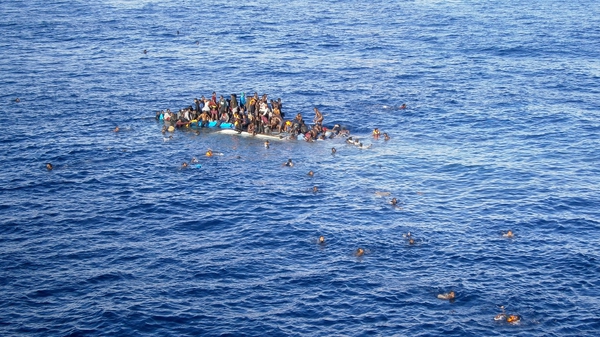The Tunisian captain and a Syrian crew member of a boat that capsized off Libya on Sunday, killing hundreds of migrants, have been arrested on suspicion of people smuggling.
They were among 28 survivors on board a coast guard vessel that arrived in Sicily late last night.
Italian prosecutors blamed the captain of the grossly overloaded fishing boat for a collision which capsized and sank his vessel.
The few survivors of Sunday's tragedy told investigators how the African and Bangladeshi migrants, among hundreds of thousands trying to escape war and poverty, had waited up to a month in Libya before the boat set sail for Europe.
The heavy loss of life among the migrants has put heavy pressure on European leaders to respond effectively to a dramatic rise in deaths among people attempting the crossing.
Police have quoted survivors as giving death tolls ranging from 400 to 950, in what appears to have been the worst disaster ever among migrants fleeing by sea to Europe from north Africa.
Italian police arrested a 27-year-old Tunisian, named as Mohammed Ali Malek, who is believed to have been the captain of the ship.
He may be charged with multiple homicide, as well as people smuggling and causing a shipwreck.
Prosecutors say that with his boat already in serious difficulty, the captain attempted to come up to a Portuguese merchant vessel that had approached to give aid and collided with the much larger ship.
The prosecutors' office in the Sicilian coastal city of Catania said no blame was attached to the Portuguese vessel.
As well as the captain, Catania prosecutors also arrested Mahmud Bikhit, a 25-year-old Syrian believed to have been his main assistant, who is accused of people smuggling offences.
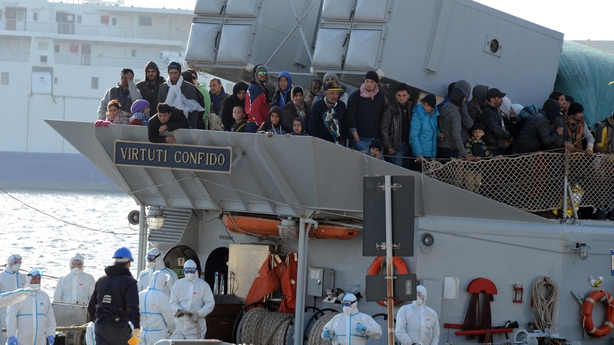
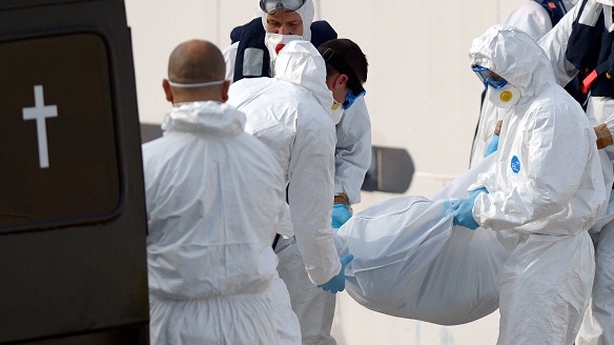
Already a grim picture has begun to emerge of the conditions during the voyage.
Hundreds of men, women and children were held in the hold of the 20-metre-long fishing boat for more than 48 hours before the disaster.
So few survived because most of those on board, including an estimated 200 women and around 50 children, had been locked in the hold and lower decks of the three-deck vessel, said Giovanni Salvi, chief prosecutor in Catania.
That has also made it impossible to reach the bodies so far and verify the toll, although investigators may try to recover the wreck.
Prosecutors say survivors have told them they paid between 500-1,000 Libyan dinars (up to €780) for the voyage.
#INFOGRAPHIC: UN confirms 800 killed in weekend Mediterranean migrant boat tragedy. Two survivors arrested pic.twitter.com/9WKrB9SL3P
— Agence France-Presse (@AFP) April 21, 2015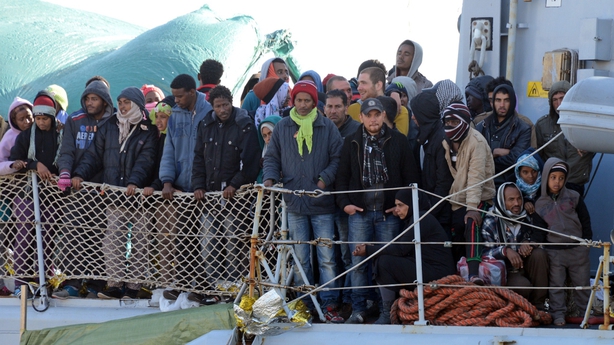
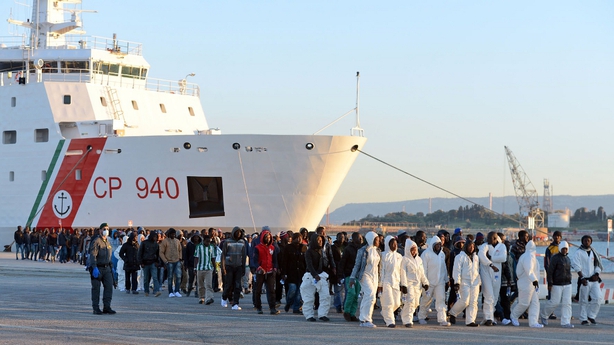
French President Francois Hollande compared the migrant traffickers with "terrorists" and said EU leaders meeting in an emergency summit on Thursday would have to act decisively.
"That's why the European Council meeting on Thursday can't just be an ordinary European Council where we take ordinary decisions, we have to go much further," he told reporters.
Nearly 1,800 would-be migrants have drowned this year, compared with fewer than 100 by the end of April last year – a period when a similar number attempted the crossing.
An expected rise in numbers in the late spring and summer months has added to the urgency.
The cancellation last year of Italy's "Mare Nostrum" search-and-rescue operation, over cost pressures and criticism that rescuing migrants lures more to cross, has failed to solve the crisis.
The policy, still backed by some European Union countries, appears to have made the voyage deadlier without reducing the numbers attempting it.
The EU proposed yesterday doubling the size of its small naval mission in the area, which replaced the far larger Italian operation but which has been criticised as wholly inadequate.
The Italian coast guard said 638 migrants were rescued from rubber dinghies yesterday in six operations and a further 112 today.
Merchant ships and coast guard patrol boats also helped a fishing boat carrying migrants about 80 miles off the southeastern coast of Calabria, in mainland Italy. All 446 aboard were rescued.
Lawlessness in Libya, where most of the migrant boats originate, has made it difficult to stop traffickers packing thousands of people into unsafe fishing boats and dinghies that have proved to be death traps.

